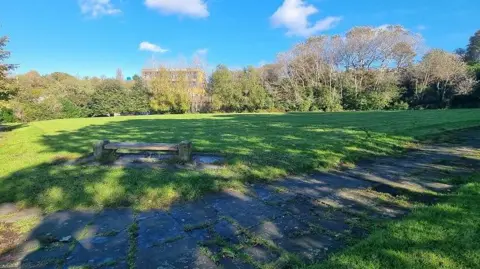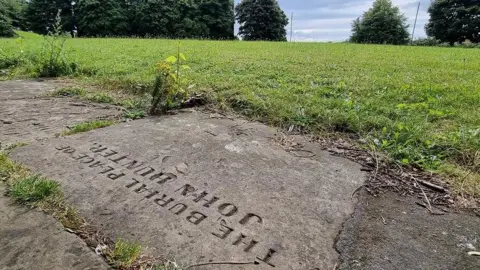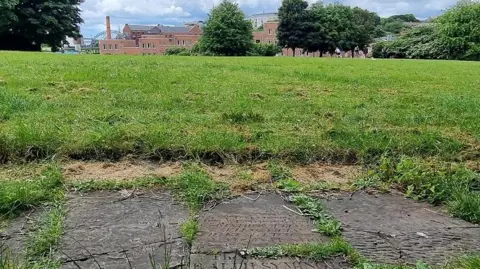Burial site of thousands being studied
 Dr Myra Giesen
Dr Myra GiesenA burial site dating back to the 18th Century and believed to be the resting place of 40,000 people is being studied.
Archaeological surveys are being carried out at the inner city Ballast Hills Burial Ground in Ouseburn Valley, Newcastle, to determine its size.
It is also hoped the work will determine the boundaries of the original burial ground which has a headstone dating back to 1708.
Project leader, Dr Myra Giesen of Newcastle University, said she hoped learning about the past would help shape the future of the site.
Dr Giesen said the site had more interred bodies than all the churchyards in the city combined, with an average of 599 interments annually from 1820 to 1825.
Those buried at the site include people who did not conform to the Church of England, people who had drowned in the River Tyne, the poor and still-born babies.
Although it is believed to be the resting place of thousands of people, only 900 headstones have been found.
 Dr Myra Giesen
Dr Myra GiesenThe site is owned by Newcastle City Council and protected within Lower Ouseburn Valley Conservation Area.
Dr Giesen said: "We don't know exactly how far the boundaries go.
"Understanding the boundaries helps us inform how significant the site was.
"There are no non-conformist burial grounds this large, this far north."
 Dr Myra Giesen
Dr Myra GiesenAfter the fieldwork is completed, a record of details on headstones will be made with the help of volunteers.
Some were used as flagging for a path when the site was turned into a playground in 1930 and are in a poor condition.
Dr Giesen said it was important that the descendants of those buried have the chance to learn more about their ancestors.
Follow BBC North East on X, Facebook, Nextdoor and Instagram. Send your story ideas to [email protected].
